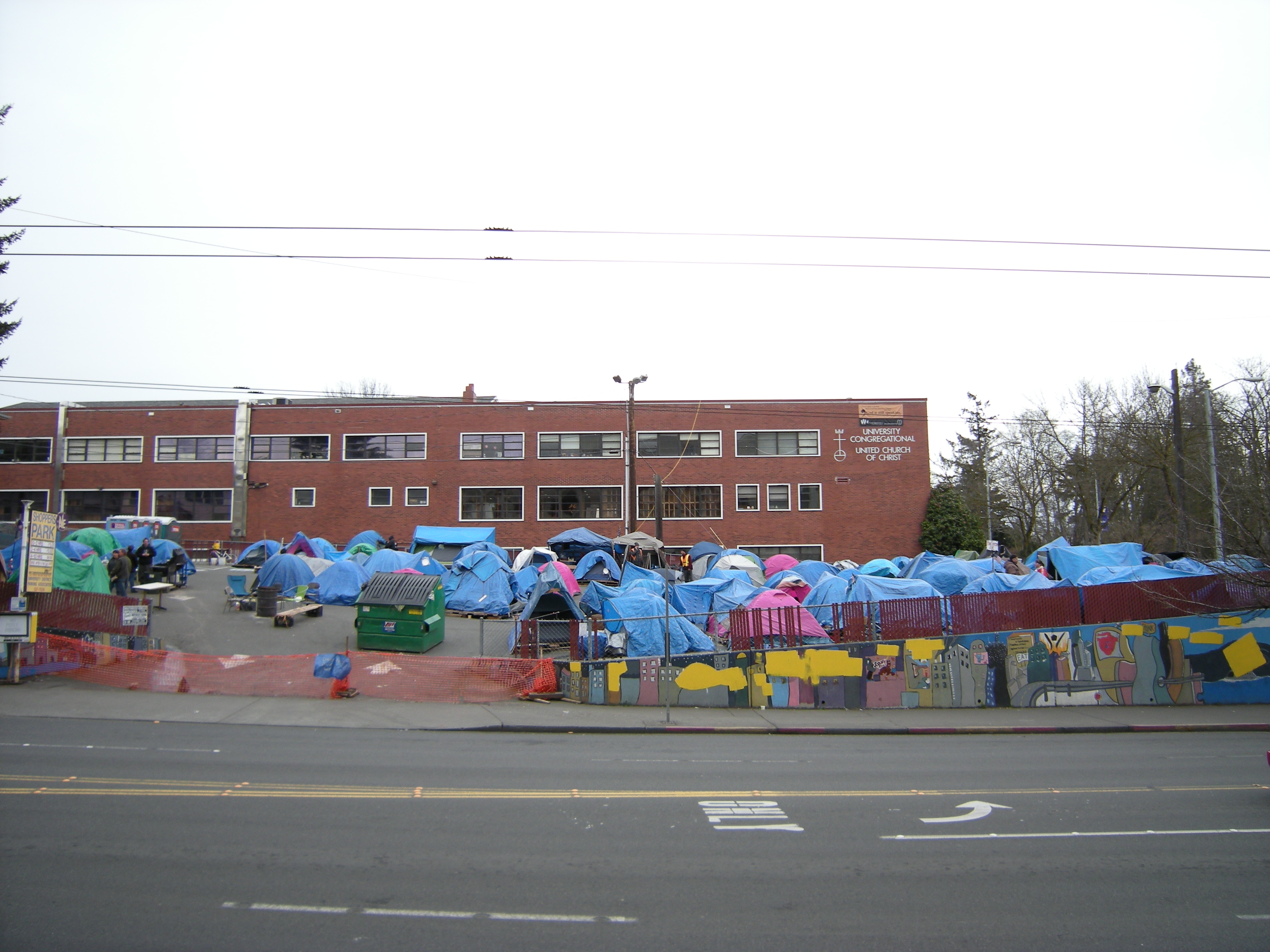 |
Photo from wikimedia commons, of people sleeping in Steinbrueck Park
(I added the number). Original photo by Joe Mabel, 2011. |
This may be in the "more than you wanted to know" department.
The One Night Count in King County found 4,505 sleeping outside or without adequate shelter. I discussed this in the last post.
When counting: tents, sleeping bags, or tarps are not considered adequate shelter. All the folks in the organized encampments are considered to be unsheltered during the One Night Count. While they have somewhat more safety than those who are "sleeping rough" by themselves, they are still
not housed.
This year, several shootings occurred during the period before the One Night Count, in the area known as "the Jungle." As a result, the agency conducting the One Night Count did not count the homeless in the Jungle this year, as it was considered too dangerous.
I believe that there are still many homeless living in the Jungle, living with the ever-present danger of being assaulted while they sleep.
During the One Night Count, they physically counted 29 minors. There are likely many more. The State of Washington reports over 35,000 schoolchildren were homeless at some point during the school year.
The statewide numbers were up this year.
Before the One Night Count, I had estimated that the count
would be around 5,000. I was close; 4,505 is only 9.9% short. We don't
know how many homeless live in the Jungle. Had they been counted, I
think we'd be a lot closer to 5,000 than most politicians are
comfortable with.
The fact that we have 5,000 people
sleeping unsheltered in King County should generate outrage. But if you
live with something long enough, you become inured to it. It doesn't
cause that outrage any more.
The cities and the counties do not have the resources to deal with this problem. Washington is one of the states that has no income tax, and has one of the lowest overall government spending rates. It's also one of the states where homelessness is rising. Maybe -- just maybe -- those three facts are connected.
The State legislators know that we have a homelessness crisis. And many of them are trying (in their various silos) to solve it their own way. There is not a concerted and organized effort to solve these problems. What we have -- cities, counties, state -- is a mishmash of small private and public efforts.
A question remains: what shall we do about this?
Do you know who your United States Congressmen and United States Senators are? Have you made your views known to them?
Do you know who your State Representatives and State Senators are? Have you made your views known to them?
Do you know your City and County council members? Have you made your views known to them? Publicly? Have you spoken to these councils in the public comment periods of their meetings? The more people who talk about these facts, the more they'll pay attention to them!


